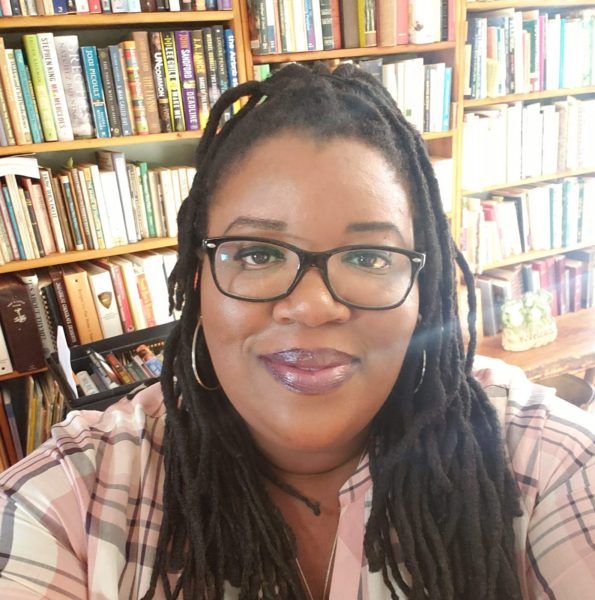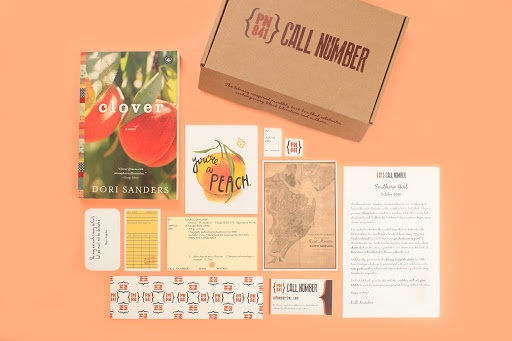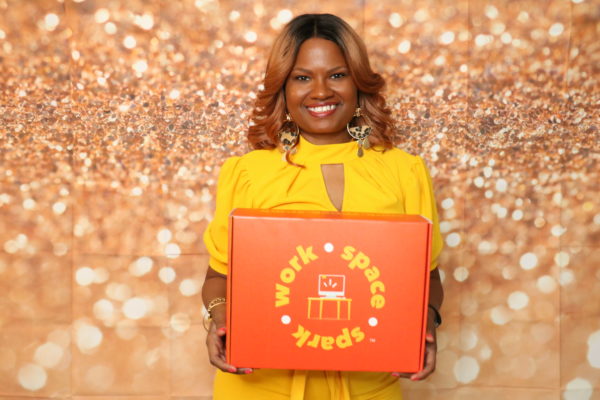One of the most common questions we hear at SUBTA from people looking to launch a subscription business is, “Where do I even start?”
The journey ahead can seem long and overwhelming when you’re staring at a blank slate. Don’t let it get to you, because that same blank slate is also the door to a world of endless possibilities.
Here at SUBTA, we want to make sure you’re starting out on the right foot. We reached out to four experienced and successful subscription business owners to find out what pieces of actionable advice they would give to those just starting out.
Learn from Jamillah Gabriel of Call Number Box, Nia-Tayler Clark of BlackLIT, Anthony Coombs of Splendies and Dorethia Kelly of Work Space Spark to find out what action steps and advice they wish they had known about when they started their subscription journeys.

Flexibility is Key
Jamillah Gabriel founded Call Number Box while she was working as a librarian. Now a Doctoral student pursuing a degree in Information Sciences while running Call Number Box on the side, Gabriel has many gems of wisdom to pass on to aspiring subscription business owners.
“If you do start your own business, be flexible,” she says. “Start strong, but know time and other factors might force you to transition in order to succeed. Flexibility is key.”
For example, Nia-Tayler Clark, Founder of BlackLIT, initially planned to open a bookstore to highlight Black authors and entrepreneurs, but she didn’t have the funds to do so. Instead, she pivoted and started a subscription box to “get books to as many people as possible, as quickly as possible.”
Now, with customers, funding and a successful subscription business, the doors to her bookstore will be opening this year.
For example, Nia-Tayler Clark, Founder of BlackLIT, initially planned to open a bookstore to highlight Black authors and entrepreneurs, but she didn’t have the funds to do so. Instead, she pivoted and started a subscription box to “get books to as many people as possible, as quickly as possible.”
Now, with customers, funding and a successful subscription business, the doors to her bookstore will be opening this year.
For Call Number Box, Gabriel’s transition into being a full-time PhD student made her realize that her company would be too challenging and time consuming to operate on a monthly pace. One year into her business, she switched to a quarterly box and the results spoke for themselves.
“It ended up being better for the business, actually. With the monthly delivery, we had more pauses and cancellations from people who couldn’t keep up,” says Gabriel. “They would write in saying they had a stack of books they hadn’t yet had time to read and needed to pause. Many customers enjoyed the quarterly delivery
Not only has Call Number Box’s operation been just as efficient and fulfilling to customers since the change, it also enabled Gabriel to balance school and her subscription business.
Creating Representation & Broadening Horizons
Gabriel also stresses the importance of community.
Regardless of the challenges, if you’re thinking about starting your own subscription business, “DO IT!” says Gabriel. “Affinity groups have been nurturing and encouraging on a great level. There’s a shared wealth of knowledge available from like-minded subscription business owners.”
Clark shares Gabriel’s sentiments that community is a game changer. “I’m in a Facebook group with black subscription box owners, and I’ve learned so many new things and met so many different people,” she says.
She credits her mentors for helping her gain confidence in her business and advises aspiring entrepreneurs to find their own mentors. “Once you establish those relationships, don’t show up empty handed. Come ready to ask questions because they want to help you.”
Representation is vital to successfully grow an industry. When Gabriel first cooked up the idea of Call Number Box, she researched what was out there and found there were no Black literature boxes for adult readers.
Not only has she been able to fill a void, she also helped promote social enlightenment and forward progress.
“We have many white subscribers who want to hear Black voices and read about Black perspectives,” says Gabriel. “They’re becoming more interested in Black literature and Black thought.”
“It’s important for us as business owners to recognize that your product might have a certain person in mind that looks like you, but that it also can have appeal to a broad base of people.”
In addition to the personal rewards of launching your own business, you’ll also enjoy the benefit of reaching new people and broadening horizons, thereby contributing to the positive life experiences of people around the world.
Set Proper Expectations & Aligned Goals
Starting a subscription business with the aim of having any sort of impact – from simply brightening someone’s day to sparking social change – can come with a lot of pressure. Yet, as Anthony Coombs, Founder of Splendies, advises, you don’t have to be the next Steve Jobs to have a successful subscription business.
“One of the perils of entrepreneurship is that so many people think that they have to create the next Google or Facebook or Amazon or a billion dollar company or else it’s a failure,” says Coombs. “But people should be able to see that you can run really successful businesses that aren’t worth a billion dollars and do very, very well.”
Clark advises first and foremost putting your heart into your business. “Money’s going to go up. Money’s going to go down. But if you want to make an impact on people, you have to first care about people.”
In fact, Clark, a former high-school teacher, started BlackLIT after one of her Black students stated that they didn’t read because they were Black. In response, she says, “I gave myself this challenge of really trying to help them see themselves in a book and see that you can read – you can enjoy reading.”
If, like Coombs and Clark, you run a brilliant and successful business that brings you a lot of joy but doesn’t happen to be worth a billion dollars, share your story.
People need to see what’s possible and what’s realistic so that they can start to see what’s possible for them, too. The key is to set goals that are aligned with your life, your values, and your priorities – not everyone else’s.
Don’t Rush The Process
In addition to setting your monetary goals appropriately, it’s critical to set your launch goals small from the start. According to Coombs, one of the biggest mistakes new business owners make is assuming they have to build their complete vision — their end goal — in order to launch.
No need.
“Start very small with a minimal viable product,” says Coombs. “How simple can you make this?”
“As a business owner, you think of everything from A to Z and you want it all to happen tomorrow. But you need to start with just A. That’s your MVP.”
Likewise, Dorethia Kelly, Founder of Work Space Spark, advises aspiring subscription entrepreneurs to avoid one major mistake that she made: “You watch bigger businesses and they’ve got this whole unboxing experience, and I tried to live up to that. But I still cringe every time I think of the cost of that first branded box.”
We’re challenged by big companies like Walmart and Amazon to offer free shipping, but that’s simply not feasible for most subscription boxes.
“At the end of the day, if you’re paying people to buy your box, it doesn’t make sense,” says Kelly. When Work Space Spark stopped offering free shipping, the company didn’t notice any significant impact on current or new subscribers lost or gained. Yet the financial impact for the business was massive.
Once you know what will and won’t work at the smallest level, you can incorporate feedback from customers more effectively, adapt and continue to build something that is actually going to be successful in the marketplace.
The 90-Day Test
When launching Splendies, Coombs had, as he calls it, the privilege of dedicating all of his time and energy to building the business. However, many new business owners build their companies alongside a full-time job.
“If that’s you,” says Coombs, “know that you’re going to build your company from 6pm to 2am. Are you willing to do that? To build something that may or may not work? If so, excellent. Go out and do it.”

Then, give yourself a realistic timeframe to see if your idea is viable. According to Coombs, most businesses can be proven positive in the first three months.
“Give yourself 90 days to see if what you’re doing has legs,” says Coombs. “Are people talking about it? Enjoying it? If so, keep it going. If not, read the tea leaves. If it’s not working, there’s probably a good reason.”
The best question you can ask is, “Do people like this?” Furthermore, it’s important to ask the right people that question.
“Don’t go to your friends and family because they’re more likely to placate you than to tell you information that’s really necessary to make smart business decisions,” says Coombs. “Listen to the customers and pivot if you need to.”
Don’t Be Afraid to Learn On the Job
Kelly, a natural learner, researched the subscription industry for 18 months before launching her subscription business, even going so far as to run her own focus groups.
Yet, when she launched in March 2020, at the onset of the coronavirus pandemic in the U.S., she still had a lot to learn. “There’s going to be a lot of on-the-job training,” says Kelly. “I’m a preparer. I researched and I hired coaches that gave me a leg up, but there are some things that you’re not going to know until you start.”
Like Kelly, Coombs recognizes the value of learning new skills as an entrepreneur. “I really enjoy that aspect of being able to say I know nothing about something, and then by the end of the day, I’m going to know at least something about it.”
He adds, “Entrepreneurship is very much like an artistic endeavor where you start out with a blank slate, and by a month in, you may have some system in place.”
But like anything in life, balance is key. Trying to learn everything all at once can lead to burnout, so consider the tools and practices that will truly benefit your brand. Coombs learned that firsthand. He once spent an entire day learning Twitter ads and admitted that, today, Splendies doesn’t even advertise on the social media platform.
Like gradually revealing a map in a video game, you have to learn, stumble, fall and pick yourself back up before you know which next direction you need to head in next. That is something only you as the creator of the business can know for yourself – and something you won’t know until you jump in with both feet.
Launching a subscription business isn’t easy. None of our experts will tell you it was a walk in the park for them. But it can be easier and more enjoyable when you follow the advice from the pros who have done it all.






